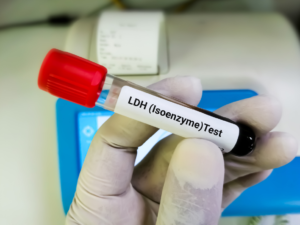What is a parentage test?
Parentage tests are tests performed in a laboratory to determine the compatibility of a person’s genetic profile with his or her parents. The result is a percentage called the degree of compatibility, which determines whether or not the parentage is compatible.
This test is possible thanks to the fact that children inherit 50% of the genetic material of each of their parents. Although each person has a unique genetic profile that differentiates him or her from other people, it is the variations in the DNA profile that make it possible to establish kinship links such as paternity or maternity.
Types of tests
In addition to these tests for maternal-filial purposes, kinship tests can also be performed for other types. In this case other factors come into play, such as whether the relationship is paternal or maternal or the sex of the individuals to be tested. Depending on these characteristics, one study or another will be chosen:
Y chromosome marker study. This is applied to identify a relationship if both are male. This would be the case of paternal grandfather and grandson, brothers or between paternal uncle and nephew. All individuals would have to share the Y chromosome for the test to link them genetically.
X chromosome marker study. This test is used to confirm or disprove the paternal origin of two sisters. If they share the same biological father, they would have to have the same copy of the X chromosome.
Mitochondrial DNA analysis. This test is indicated for the maternal line, such as between maternal aunt and nephew/niece, between sisters or between maternal grandmother and grandson/granddaughter. As the name suggests, the test is performed using mitochondrial DNA, which can only be inherited through the maternal line.
If there is a case that is not covered by any of the aforementioned tests, the genetic material corresponding to the autosomal chromosomes is analyzed. The X and Y chromosomes are excluded from the analysis.
The results of most of these tests can be known within 15-20 days. The demand for these tests tends to increase in cases of inheritance problems or to reunite families in the event of immigration or separation.
Paternity Testing
A paternity test, as the name implies, serves to identify the biological father of a child. In cases of adoption or doubts about the paternity of a baby, this is the test used. It is essential to perform this process with extreme care. The test will only be considered positive if it can identify the father with 99% certainty.
There are different types of paternity tests: red blood cell antigen testing (blood typing), polymorphic serum protein gene testing, and short tandem repeat screening. The procedure is similar to a criminal investigation: DNA is extracted from cells and manipulated to better observe the uniqueness of the cells.
Prenatal testing
It is possible to know the biological relationship to a baby before birth. The appropriate test for this is the non-invasive prenatal paternity test. It is completely safe for both mother and baby. It is performed in the ninth week of pregnancy so that it can give optimal results. The process is simple: a quantity of blood is drawn from the mother and the fetal DNA circulating in the maternal bloodstream is isolated. On the other hand, a biological sample is obtained from the father, which can be a blood sample, a saliva sample, a buccal swab or a forensic sample, in order to compare them.
Legal aspects of parentage testing
These parentage tests are valid in court and are considered evidence. To ensure that there has been no manipulation of the samples, the participants are obliged to identify themselves. In addition, the chain of custody of the samples must be constantly monitored throughout the process.
As this is a legal test, the results must be legally accepted by those involved. It can be a fundamental test in civil, criminal, immigration or immigration law cases.





